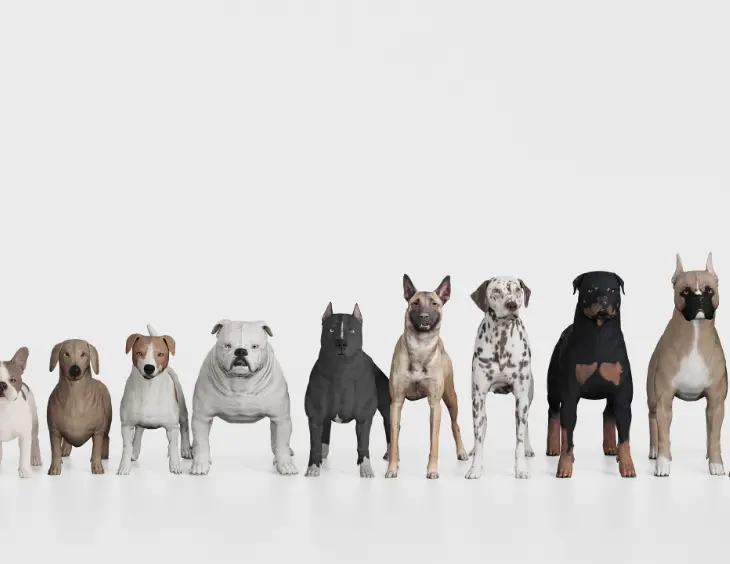Among the most loyal pets, dogs will always come first. However, even the most loyal dog may run away sometimes and stay missing. So the question is, why do dogs run away from home, and in what situations?
Dogs generally run away when frustrated, afraid, bored, or having separation anxiety. Their hunting instincts and mating needs can also trigger this behavior. While a dog may run away when it finds the doors open, is off-leash, or sees other dogs, such incidents can also happen when you are trying to pet it, pick it up, or give it a treat.
In this article, I am going to explain these situations and reasons in detail so that you can manage and prevent your dog from running from your home. Let’s discuss.
Reasons Behind a Dog’s Escape

Although dogs are the best companions of humans, they have their own feelings and instincts. So, your dog may run away whenever one or multiple of these feelings and instincts trigger. This doesn’t necessarily mean you are a bad dog parent or neglecting your pet.
Let’s take a look at some major reasons that your dog may run away:
1. Frustration
Dogs require regular physical and mental stimulation to lead a happy and healthy life. If they do not receive enough of these simulations, they tend to develop escape-seeking behavior, eventually leading them to run away from home.
2. Fear
Fear is another important motivation for dogs to get away from their home. These pets get easily startled when they hear loud noises, see unfamiliar people, or face other stress-inducing situations. When they encounter these, their first instinct is to leave that place and go elsewhere.
3. Mating Instinct
During mating season, most dogs become relentless in finding a partner. Therefore, many dogs go missing during mating season. Most of them come back after they come out of heat. For some, you may have to put up a lost dog flyer. Spaying or neutering your dog can stop such behavior.
4. Separation Anxiety
Dogs are very attached to their owners and feel very sad when separated. If your dog stays alone for long, it gradually develops separation anxiety. Thus, it runs away from home the first chance it gets to reunite with you.
5. Boredom
As with any other animal, dogs need to stay active for a healthy lifestyle. If your favorite boy does not have enough activities to keep him entertained, he will seek entertainment elsewhere. This will trigger its running away behavior.
6. Hunting Instinct
As descendants of wolves, dogs inherit hunting instincts and get excited when they find smaller animals around them. This often causes dogs to run away from home and chase other animals to hunt. Even the most well-behaved dogs can escape your home due to this reason.
Situations in Which Dogs Run Away

As you now know the reasons for your dog to flee, you should also know about the situations where dogs run away. So you will be better prepared and prevent your dog from fleeing. Some common situations when dogs run away are:
- When they find the front door open.
- When dogs are on a walk off-leash and find intriguing or tempting smells or sounds.
- When you are offering treats. It may trigger your dog’s prey-like response.
- Some dogs may try to run when you are trying to pet.
- Due to previous trauma, some dogs may flee from you when you call their name.
- Seeing other dogs may spook your dog, making it flee to feel safe.
- Due to anxiety or medical issues, a dog may run away all of a sudden.
- If a dog has negative experiences associated with being outside, it may run away when trying to take it out.
- Some dogs may run away when you try to pick it up due to discomfort or fear.
Dog Breeds Most Likely to Run Away

Not all dog breeds are the same; some like to stay close to their owners, and some are more likely to run away.
Generally, smaller dog breeds are tamer and less likely to run away. In contrast, medium and large dog breeds are more active and need bigger spaces. If they are not properly entertained, they will try to find ways to flee.
Here is a list of 15 dog breeds that are most likely to run away:
- Beagle: The incredible sense of smell and a reputation for hunting instincts
- Siberian Husky: Adventurous and has a strong desire to run and explore
- Jack Russell Terrier: Energetic and likes to chase small animals
- German Shepherds: Run away if they are bored; otherwise, they are very loyal
- Border Collie: Highly active and may run away if not sufficiently stimulated
- Labrador Retriever: The curious nature of these breeds makes it more prone to fle
- Greyhound: Natural racers; likes to run in open areas
- Chihuahua: Despite being small, they have a strong prey drive
- Australian Shepherd: Needs constant physical and mental stimulation
- Dalmatian: Wander off if not properly contained or exercised
- Pit Bull Terrier: Strong and energetic breeds need to be trained properly
- Golden Retriever: Have a strong urge to explore and greet new people and animals
- Vizsla: High-energy and driven; needs proper outlets to release their energy
- Basset Hound: A keen sense of smell often drives them to flee from home
- Dachshund: Have a strong sense of smell, often runs away to chase animals smaller than them
Final Words
As per the discussion above, now you know the key reasons why your dog runs away from home and when. Also, you should get an idea of which dog breeds generally run away. This will help you to prevent such things from happening.
Make sure your dog is properly stimulate and entertained. Do not keep it alone for a longer time, and give it much love that it deserves. If your dog needs spaying or neutering, complete the procedure as soon as possible. This will help you keep your dog comfortable and active at home.

